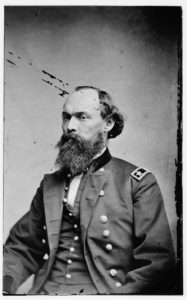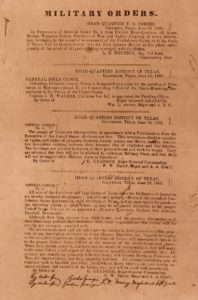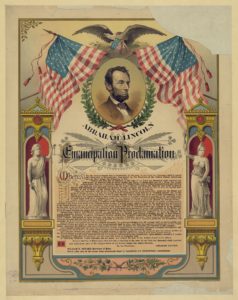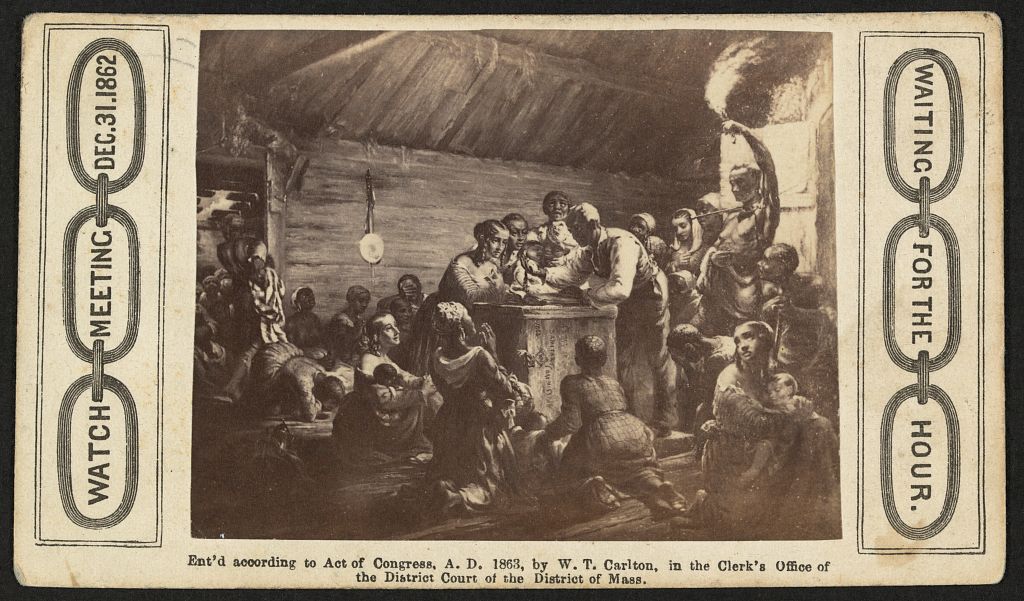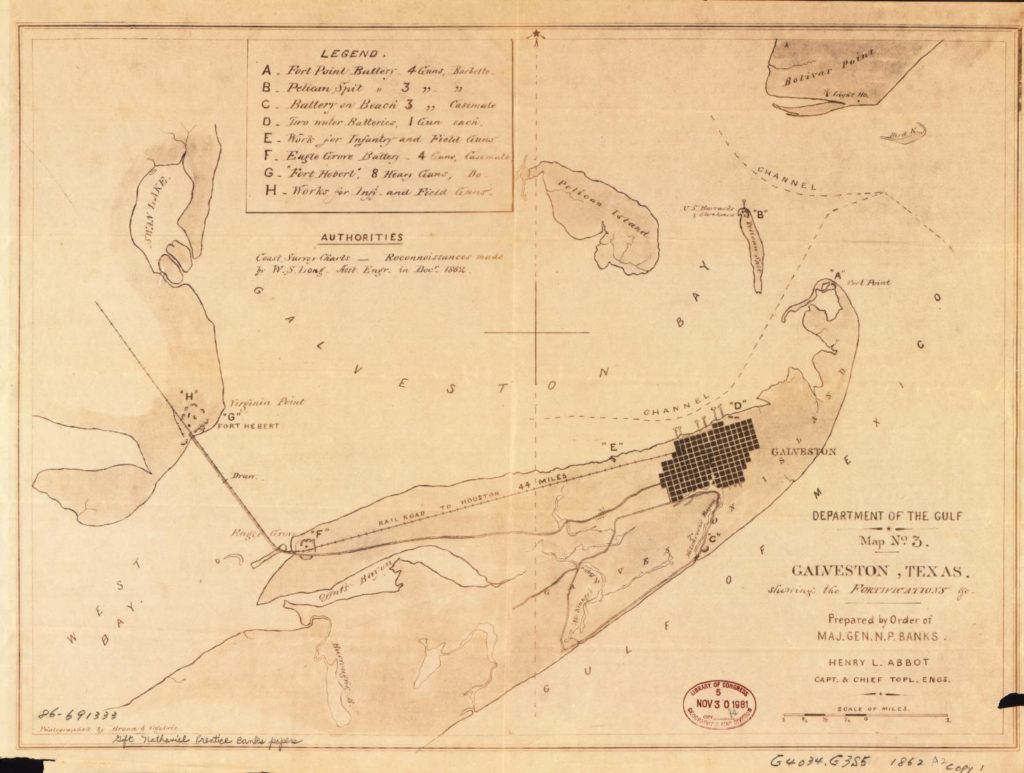As the American Civil War ended, federal troops took control of Galveston, Texas. On June 19, 1865 General Gordon Granger used a military order to announce that more than two years earlier President Abraham freed the slaves in Texas and other rebel states. The Boston Daily Journal reported this in its July 7, 1865 evening edition:
FROM TEXAS: Gen. Granger issued an order at Galveston on the 19th ult. informing the people of Texas that by virtue of the emancipation proclamation all slaves are free, which involves an absolute equality of personal rights and rights of property between former masters and slaves. The freedmen are advised to remain quietly at their present homes and work for wages. They are informed that they will not be allowed to collect at military posts, and that they will not be supported in idleness either there or elsewhere.
The General has also issued an order declaring all acts of the Governor and Legislature, since the ordinance of secession, illegitimate. All civil and military officers and agents of the so-called Confederate States government, or of the State of Texas, and all persons formerly connected with the Confederate States army, in Texas, are ordered to report at once for parole. Public property must be delivered to the officers of the United States. Guerillas, jayhawkers, horse thieves, etc., etc., are declared outlaws and enemies of the human race, and will be dealt with accordingly.
The telegraph lines of Texas are to be worked by the companies, subject to the supervision of Mr. L.B. Spellman, of the United States Military Telegraph.
Senator Johnson of Arkansas had surrendered to General Granger, and having been paroled by the latter, had returned to Marlin, where his family was residing. Mr. Johnson was one of the leading politicians of his State.
A letter from Houston to the New Orleans Picayune says:
“A general sacking of government stores and division of the plunder occurred in all the towns along the homeward line of march of the disbanded rebel troops. In a few instances even private property was not respected, and occasional encounters between soldiers and civilians, together with accidents, resulting in loss of life, have been the consequence. Among the latter the most serious was the loss of fifteen lives and the destruction of nearly half of the town of Navasota by the explosion of a magazine, which they had entered for the purpose of getting powder. The cause of the calamity is variously ascribed to accident and design.”
Business is reviving in Galveston. Three steamers were running between Galveston and Houston, bringing down cotton. Mechanics, and particularly carpenters, were in demand. The Galveston Bulletin remarks:
“Hundreds of houses and squares of fence have disappeared since the war commenced, and hundreds have been reduced by the soldiery to a condition worse than horse stables, for all of which we are indebted ex-Gov. Lubbock, some infatuated Galvestonians and Gens. Hebert and Magruder – the former of which desiring to burn the town in order to keep it from falling into the hands of the Yankees, and the latter declaring that having conquered the place, he clrimed[sic] the privilege of doing with Galveston what he pleased.”

